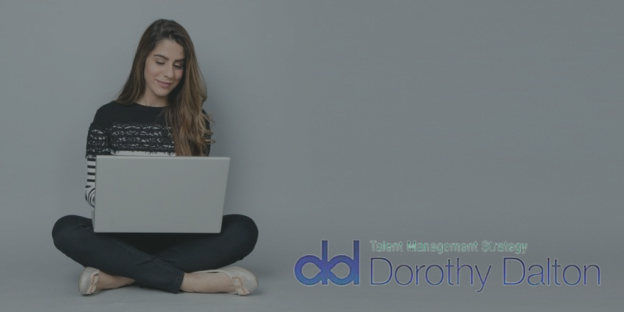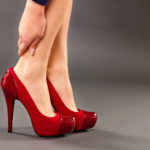At the risk of coming over as a Jurassic fossil, I’m not a fan of business dressing down, even on Fridays, let alone Monday to Thursday. And before the hoodie brigade and Facebook/Google/Insta/TikTok crew come at me with Smart phones blazing, I’ll tell you why! There are good reasons for business dress codes.
Appearance bias
Yes of course the words judging, books and covers come to mind. I know that what we’re wearing should have no impact on the quality of output, performance or decisions taken. I equally know it’s important to feel comfortable in an office or business situation. Clearly coal miners and steel workers cannot work in a jacket and tie and pole dancers, nurses and aerobics teachers can’t wear straight skirts and business suits. Some clothing is not occupation appropriate that is obvious. Nor am I in favour of fashion policing and suppressing freedom of expression. And especially as we are coming out of a pandemic and two years of #WFH.
Organisations
It isn’t either totally about general business impressions. At a pre-pandemic meeting in London I walked to the conference room through an office which seemed to be populated by pizza delivery personnel who had misplaced both their mopeds and their pizzas. Even if the client meeting is in a side office, many have glass walls and visitors generally have to pass through common areas. People do note the state of the offices, as well as the people working in them. This office did not inspire confidence and part of that message came from the way the personnel were dressed. It looked sloppy. Was that a bias? For sure, but it wasn’t a tech start up. I did factor that bias into consideration.
The fact is that grooming does make a difference. It sends out an important message to all around about us as individuals, as well as the organisations we work with and for. More importantly it’s also a signal about how we feel about ourselves and our jobs.
Message to self
Last week I had an early evening coaching session with a client. I thought she had come from the gym. In fact she had come from the office. She was struggling to assert herself in her business environment and her late nights in the office and early morning starts had morphed into one sleep deprived 80 hour week blur. Her personal life had all but vanished. She had also stopped wearing make-up and it seemed that she had possibly lost her hair brush. Her garments of choice were more appropriate for a rock festival than the offices of a multi-national. She claimed that everyone in her company adopts this casual approach and she is not one bit out-of-place. Not unsurprisingly there seems to be morale and motivation issues in that organisation as it fights uncertain economic times.
But effectively she has no life outside this 15/24 work day and as her job is a daily assault course, that is how she dresses. At some level that is how she perceives her daily routine and her role in it.
Professional identity
Her goal was to revert to re-creating a lost professional identity, one that she could separate from her personal life, so that in some small way she has one. By simply getting up in the morning and putting on her professional face and uniform and taking it off every night and putting it in the laundry basket when she gets home, she has created a critical psychological and physical distinction and barrier. This was not about power suit dressing and slapping on layers of make-up. Just looking put together.
We are all our greatest assets. It’s important to care, believe and invest in ourselves. Taking pride in our appearance reflects on us professionally. Not only is it a form of self-care, it’s also a cut off point and a visual and physical boundary between our work personas and the rest of our lives. We all need that vital separation in a world where our professional and personal selves can potentially slide into one undifferentiated continuum. This is what happened for many during the pandemic.
A business dress code is one way of doing that.
What do you think?
Updated 2021
Do you feel stuck and need support with your career – get in touch NOW






I couldn’t agree more! I believe the most important role of the work dress code is to create a self-feeling, something similar to the coffee in the morning, that I’m ready for business. This separation from the blend with the personal life is important to motivate the brain to be more productive at work.
Whether we like it or not, what you wear and how you’re groomed sends a message. Make sure it’s the one you want to send!
Hi Dorothy – food for thought. I’ve found I have had to be flexible over the years. I do remember as a student nurse, sitting in class in the Royal Free School of Nursing, being given a lecture on smart “mufti” before we made a non-uniformed visit as part of training. Basically we were expected to wear a smart jacket, skirt and blouse in muted colours. When I worked as employed consultant, I was expected to wear a black or navy trouser suit. As an independent consultant, the advice I was given by my mentors was to go with a smart version of the dress code of the organization which was my client and ,for short period of time, that did include smart jeans. Now as a coach I’m back to the “smart mufti” of my youth (trouser rather than skirts though). From all that what have I learned? That good grooming, cleanliness and use of an iron are basic requirements. On top of that, try to look like what you think they will expect for someone in your role. They need to feel comfortable. Time having to be spent by the client coming to terms with how you dress, is time wasted. And when in doubt about the “dress code”, make discrete enquiries – remember at all time you are representing not only yourself but your organization.
I agree with the Dorothy. Dressing does make an impact and one should take care of the same at all occasions. Thoughts well expressed.
HI Frank – thanks for your comment. Appreciated.
While you have some valid points (grooming is important, we’re our greatest assets, looks set a tone), I disagree that a work dress code is necessary. And while I wouldn’t say you came across as a Jurassic fossil, your thoughts seem a bit outdated. Here’s why:
The trend towards a more casual work environment has been happening for years and it doesn’t seem to be slowing down. Employees prefer the freedom to wear whatever they like (with limits, I agree), and studies show that work productivity actually increases when employees can wear whatever they like.
RE the office in London, perhaps you need to adjust your perception of professionalism and not the office dress code. If you view casual attire as a standard and an accepted form of professionalism, then you aren’t put off by how someone looks. After all, why should it matter?
Now, your story about the woman who didn’t wear makeup or do her hair — I agree, that’s going a bit far. We should all take pride in our appearance enough to have good personal hygiene and have the self respect to put ourselves together. But I don’t think that wearing a hoodie vs dress pants and a button down shirt makes anyone less “professional”. It’s an evolving term. Hop on the train.
Adam – thanks for your comment. Good to have a counter argument! In lots of ways I don’t disagree with you. I know all the politically correct responses and the research that supports them. I would say I am on the train but possibly want to hop off. Less out of date – maybe forward thinking.
There will eventually be some research that will connect informal dress code and 24/7 availability with depression and de-motivation, of that I am sure, because I am already starting to see it. It’s part of an anti – “old system” zeitgeist which will eventually swing slightly back in self correction, as things always do.
One of the advantages of being even semi-fossilised is that we all know that there are trends which are deemed to be “good” things, but very often bring unforseen consequences and collateral downsides in their wake. We don’t think things through. The blurring of work/life which offers many advantages does in fact have some stings in its tail.
A professional dress code is one way to achieve a psychological separation between a professional and personal self for individuals who can’t manage this in other ways.
Ref London office, the company didn’t get the contract. The sloppy offices were symptomatic of other deeper things. Sometimes appearances are not deceptive.
Thanks for the reply. A couple things.
1. Perhaps there will be research linking dress code and 24/7 availability with depression and demotivation, though I would argue that dress code and 24/7 availability are two very different things and would be difficult to link as there are plenty of buttoned up folks chained to their Blackberry.
2. I agree that being semi-fossilised gives you perspective, and I can’t wait until I’ve left a few fossils in my wake.
3. RE the London office: it seems you’re mixing ideas. Was the office sloppy or was their dress sloppy? I have a feeling it was both, and you’re making the assessment that one was indicative of the other. While that MAY be the case at that office, it certainly isn’t true for every office, and lumping casual dress into the “we simply can’t have it” bin doesn’t seem a just conclusion. But, I see your point. In fact, if professional dress (in the traditional sense) was important to you, the company should’ve taken that into consideration and prepared for the visit. Their lack of preparation would be the excuse I would use; not the dress.
Good post. Thanks for opining.
Thanks Adam for your contribution- you make good points. Dress code and 24/7 availablility for me are all part of the trend of de/in-formalisation of the workplace, along with Duvet Days, flexi-time, telecommuting etc resulting in a blurred continuum of the professional and personal. Some of this is good. Some is not. It makes it difficult for many to find the ” off switch”.
Ref London – the key players maybe more formally attired for client-facing interaction but if the rest of the company isn’t and the client can see this it can lead to poor first impressions. The employee dress code was only one factor considered in the final decision that contributed to a general lack of “sharpness” observed in all areas of engagement from the ” meet and greet” of the receptionist, to the final written pitch.
Dorothy, I agree with your analysis. There is a need to identify different parts of our lives and to diiferentiate between them. But I think there is merit in the view that what is on the outside says something about what is on the inside. If we dress smartly, what we term ‘professionally’, we say something valuable both to ourselves and to our clients. It’s like the language we use: we rightly differentiate between language used in formal situations and informally. This is not disingenuous, but simply reflects the subtle and complex nature of society and of us as individuals. Dressing down can be liberating, I readily acknowledge, but it comes at a cost.
Thanks John for your input. I wonder does dressing down impact men more than women? Being suited and booted ( + tie) is a stark contrast to casual, where women perhaps have more in between variations which gives greater flexibility? Just a thought!
Hi Dorothy, an interesting and valuable discussion! I believe the way you dress reflects how you feel about yourself. Your coaching client is a good example. I have another. Some women following our leadership training programs (for talented professionally active women) start off the training in grey/dull/dark unfitted clothes. They have adopted some sort of ‘invisible’ dress code (which as you point out is often the only one available to men). During the training we work on topics such as authenticity, feminine/masculine energy, personal motives and drivers. And we literally see some women changing their appearance: more colour, more ‘shape’, more personality.
I have worked in advertising (dress to impress), in a booming internet company (dress down), in consulting (dress to build confidence) and now in gender balance consulting/coaching. I find it’s better to dress according to your personality, how you feel, what you have to do (a board presentation is not the same as a coaching session) … and not to blend in or dissapear in the background.
Michele – great comments. I agree most professions and occupations have a “uniform” of some sort. Indeed my coaching client when she dressed in a more professional way stood out in her group which was commented upon. When you feel ground and run down that will reflect in your dress style of choice. All of these things are small subliminal messages on how we feel about ourselves professionally.
Michele, I agree with you. I have similar experiences dressing according to my company or client; but at the end of the day it is about presenting & selling yourself in order to be confident & authentic. Personally I took inspiration from the green/white DF dress you wore at Jump Forum (2011??) when you presented your book. Very feminine and powerful!!
And yes, Dorothy, women have more leeway when dressing at work. So we should use this opportunity to our advantage!!!
Pingback: Message to self: why we need business dress codes | Women in Adria
Pingback: Message to self: Why we need business dress code
This is all well and good if you are paid to look the part. Not to say it takes a fortune to at least look put together and dress appropriately. Though I do find much of the business dress code to be Jurassic, take in part the recent heat wave and blokes running around in suits and ties. Don’t even get me started on heels … However and unfortunately, many business leaders expect staff to dress like “wine on a beer budget” and this I take serious offense.
That’s interesting – I wonder if anyone else feels that they are caught up in the organisational philopsohy of “wine on a beer budget”. Anyone with ideas on how to look smart on a budget? Agree ref suits and ties in a heatwave.
Bethany thanks for your commment.
Interesting reading. A group of principal colleagues and I were discussing this topic the other day. We are all principals of small schools in rural districts. Most males felt a suit and tie approach would alienate their clientele – the children’s parents, most of whom are farmers. I myself have found that I dress far more ‘less corporate’ now than I did as an Assistant Principal of a large secondary college. I am now principal of a small (34 children) primary school. My dress is far more relaxed and informal. As a teaching principal I often find myself sitting on the floor in learning circles etc, that is far more suited to a neat,casual dress code.
The trick is to read the situation. I might dress more corporate for a principal meeting etc.
Hi Robyn – thanks for your comment. I agree attire has to be sector appropriate and in keeping with the situation.